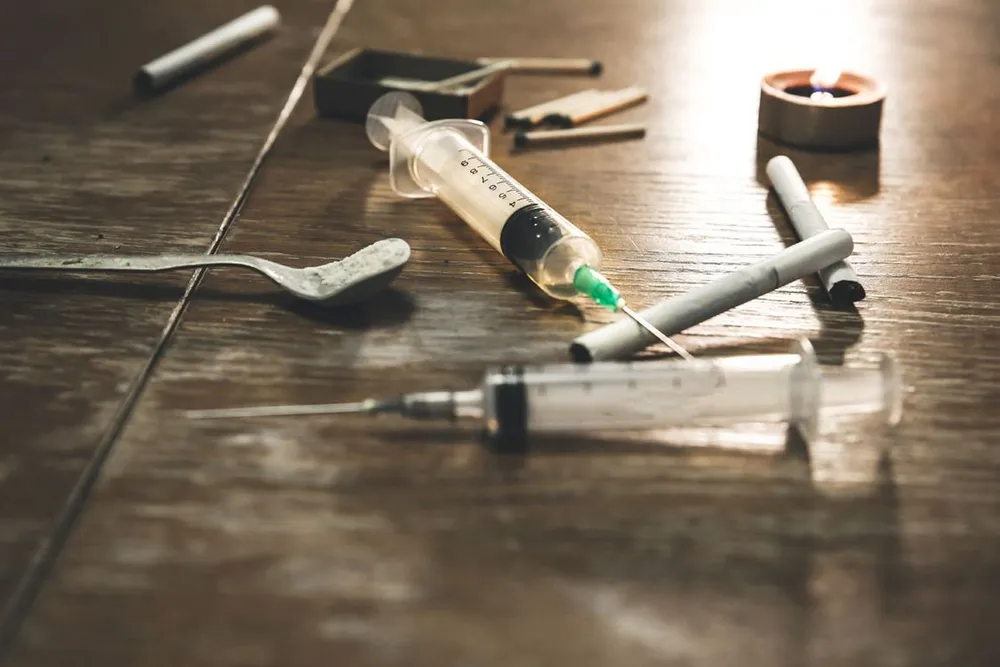Understanding Black Tar Heroin
Similar to other forms of heroin, black tar heroin is highly addictive. Its use often results in severe addiction, challenging withdrawal, mental health issues, and potential overdose fatalities.
Heroin has a long-standing history in the U.S. and originates from various regions. The term "black tar" heroin refers to its brown or very dark appearance, resembling a thick, sticky substance similar to roofing tar. When it hardens, it can appear coal-like. Unlike the more popular powdered white heroin, black tar heroin is not refined.
As with other substance dependency treatments, addressing black tar heroin addiction necessitates a thorough approach that includes detoxification and a residential program. An individual hooked on black tar heroin needs more than just detox; they require both physical and psychological therapy to enhance their chances of sustaining long-term sobriety.
Indicators of Black Tar Heroin Use
Heroin is an extremely powerful opioid. As a result, individuals may feel an overwhelming urge to use it again after just one try. When usage becomes compulsive, many continue despite the physical or mental harm it causes.
As black tar heroin use escalates to addiction, a person’s life quality may deteriorate rapidly. Neglecting life responsibilities such as family, relationships, or work is often the initial stage of heroin misuse.
When addiction fully develops, individuals might display the following symptoms:
- Tolerance: They no longer experience the euphoric effects from a standard dose, often prompting increased doses.
- Dependence: Consistent use leads to bodily reliance on black tar heroin. Without it, normal bodily functions are impaired, accompanied by strong cravings.
- Withdrawal: Those dependent on heroin will encounter unpleasant and likely painful withdrawal if they abruptly stop usage.
Short-Term Effects of Black Tar Heroin
While black tar heroin can be smoked, impure heroin is frequently dissolved and diluted for injection using a needle. Common methods include injecting into a vein, muscle, or under the skin. Due to its strong potency and unrefined nature, black tar heroin's effects are rapid, especially through injection.
As the euphoric sensations commence, a person might also face the following immediate negative effects of black tar heroin:
- Confused thinking
- Dry mouth
- Severe itching
- Heavy limbs
- Nausea and vomiting
- Warm, flushed skin
Additionally, the unrefined nature of black tar heroin makes it more prone to contamination. Research has shown that there are increased incidents of soft tissue infections and toxic shock syndrome associated with contaminated black tar heroin. These immediate risks highlight just a fraction of the dangers associated with its use.
Long-Term Effects of Black Tar Heroin
Even a single use of black tar heroin can be hazardous due to its addictive nature. However, prolonged usage can have devastating impacts on both the brain and body. The enduring physical and mental effects include:
- Addiction
- Brain damage
- Depression
- Hormonal imbalances
- Insomnia
- Overdose
- Sexual dysfunction (in men)
Overall, black tar heroin can rapidly deteriorate health and weaken the immune system. Significant risks include respiratory depression, as well as the development of tuberculosis and certain types of pneumonia.
Recognizing Black Tar Heroin Overdose Symptoms
While overdoses may not always be fatal, they carry the risk of death and are not worth the potential danger. For some, a first dose of black tar heroin might trigger an overdose, while for others with prolonged use, it might occur later.
Overdose symptoms from black tar heroin include:
- Constipation
- Delirium
- Sleepiness
- Weak heartbeat
- Stomach or intestinal cramps
- Low blood pressure
- Pinpoint pupils
- Discolored tongue
If you suspect an overdose in yourself or someone else, contacting emergency medical services immediately could be lifesaving. If administered in time, an opioid overdose reversal drug can counteract the overdose before it becomes lethal.
Assistance Programs for Black Tar Heroin Recovery
Medical detoxification and residential programs are commonly employed to combat heroin addiction. The primary goal of a medical detox program is to stabilize the individual's body while clearing the drug from their system. To ensure maximum safety and comfort, 24-hour monitoring and support are provided.
Medications can be crucial in a detoxification program, potentially alleviating withdrawal symptoms to help individuals prepare for subsequent treatment stages. Medications are often used alongside behavioral therapies to support long-term abstinence from black tar heroin.
Although outpatient treatments for black tar heroin addiction are available, residential or inpatient programs are often more effective due to the severity of this addiction. Residential programs cater to psychological dependencies and offer enhanced support. These programs should address the emotional, mental, behavioral, and social facets of the addiction.
Choosing the Right Black Tar Heroin Recovery Program
The most effective residential treatment programs offer personalized treatments based on the client's individual needs. When recovery is tailored to specific needs and goals, there is a greater likelihood of achieving sustained sobriety.
If you or someone you know is battling black tar heroin addiction, seeking help is crucial. Numerous recovery centers offer various treatment options to find the program that aligns with your needs. Contact a team member at Impact Recovery today for available treatment options—start your path to healing now!
